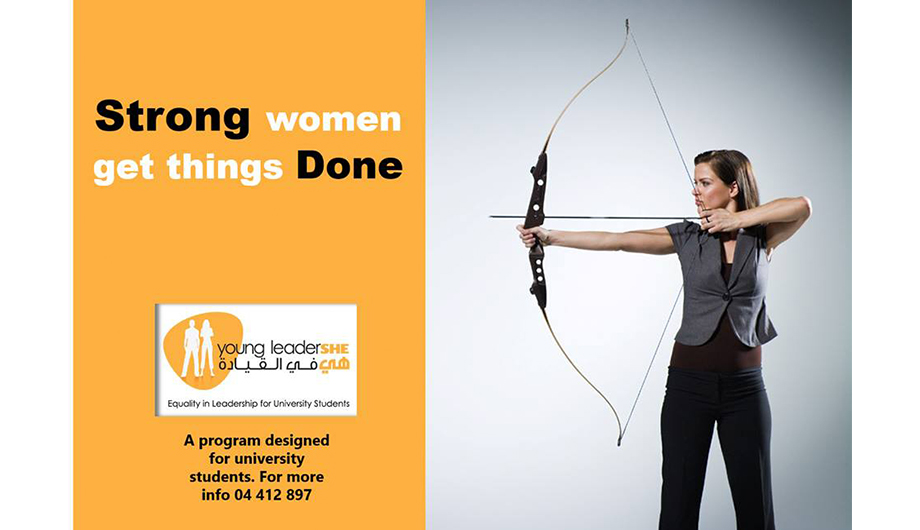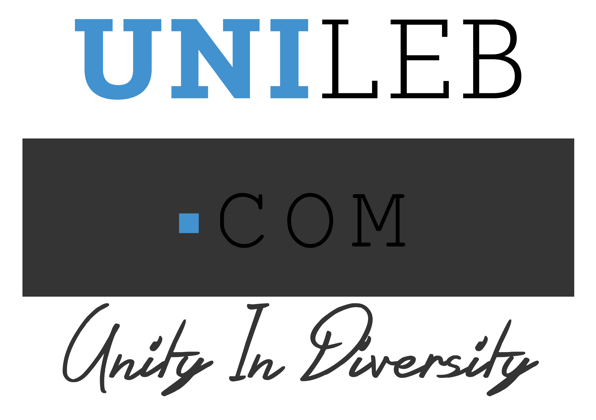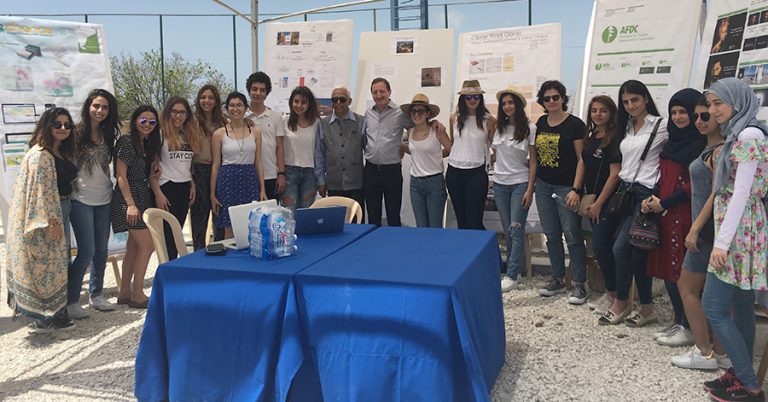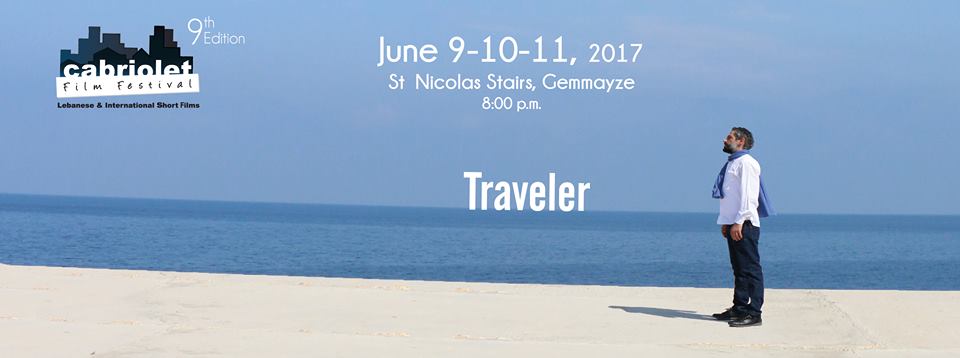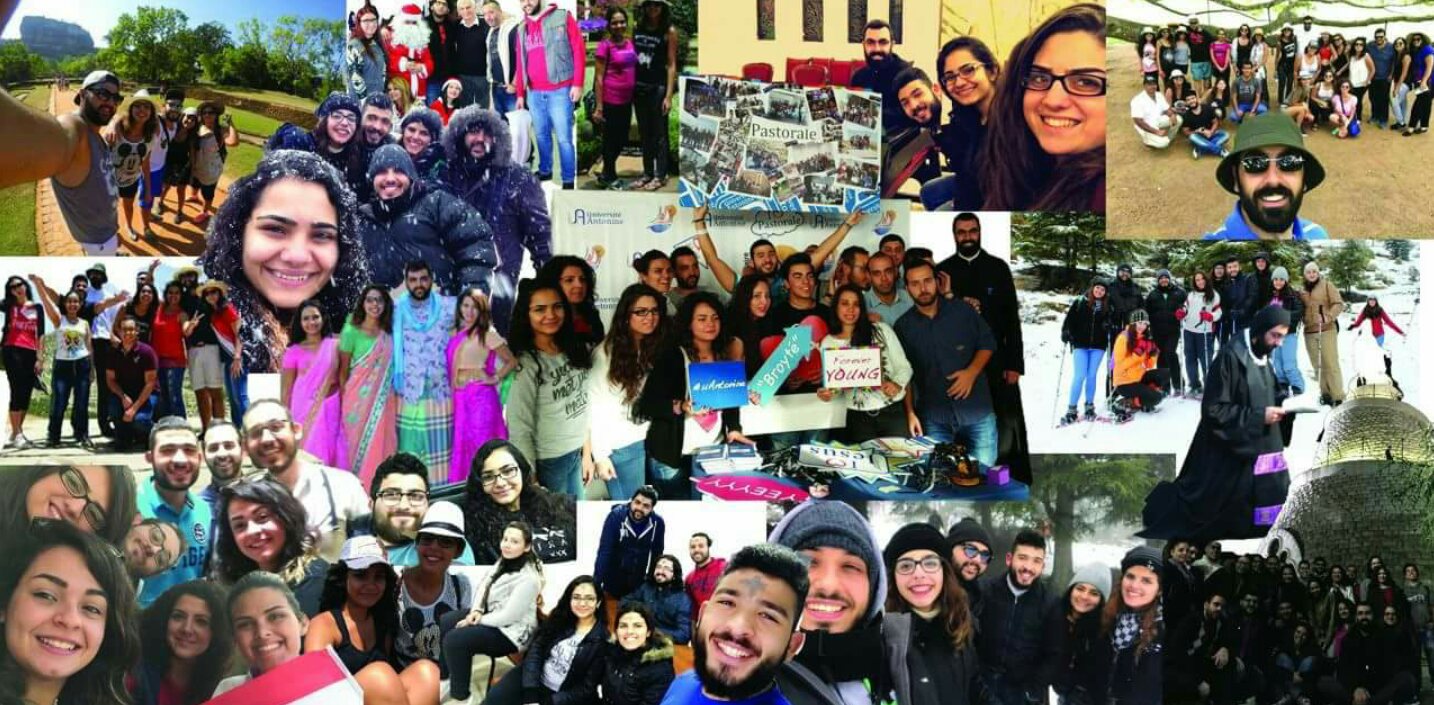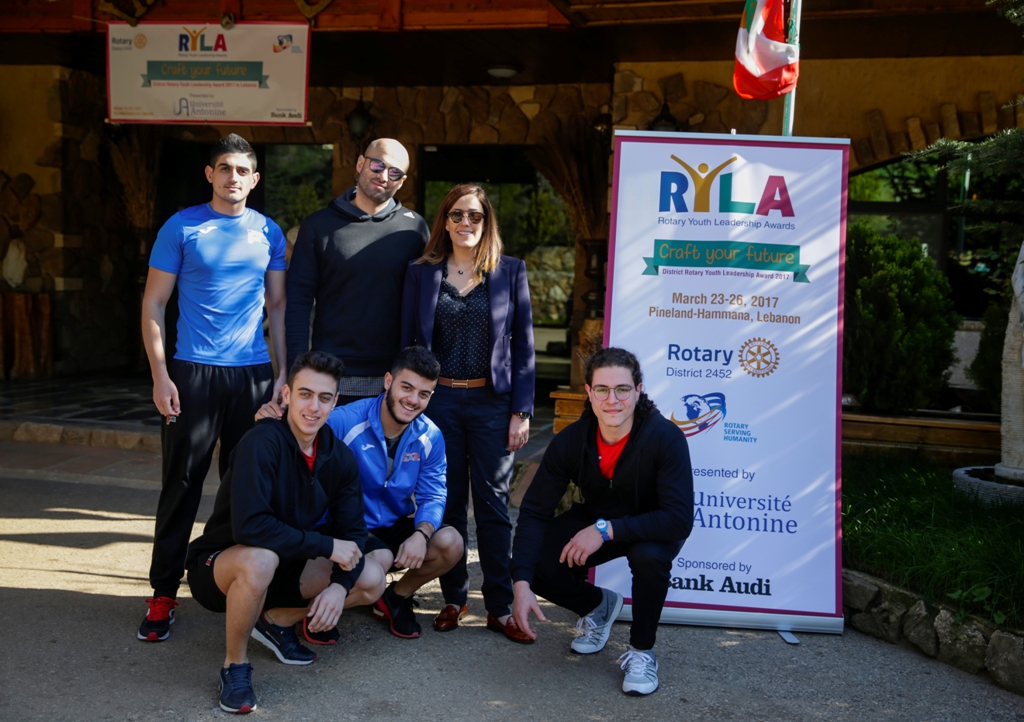Who is your Lebanese female role model from the political or public sector? Can’t find any? Mrs.Joelle Abou Farhat Rizkallah, co-Founder of Women in Front isn't surprised and sadly, neither should we.
This question was asked to high school students and no one was able to mention one Lebanese female. It seems that sadly, there just isn’t. And even if there is, no one is shedding the light on them.
This alarming fact shouldn’t come as a surprise when less than 3% of parliament seats are occupied by women, one of the lowest rate in the world, an unbearable truth for a democratic country.
On the other hand, 65% of university students are females, which means their motivation to learn and succeed is loud and clear. But the career paths they are choosing seem pretty safe and far and away from leading roles in politics and public life. The Women In Front, a Lebanese NGO, is working to destroy those saddening facts by shaking things around, with the involvement and support of University students.
Young LeaderSHE is a project aimed for university students and organized in partnership with The Embassy of Netherland in Beirut. It is sponsored by four Lebanese universities, amongst them Université Antonine, where a presentation took place last Friday, December 2nd. Mrs. Joelle Abou Farhat Rizkallah was invited on campus by Dr. Micheline Ghattas, Vice-President for Innovation at Université Antonine, where she explained the three main goals of this project:
1. Engaging and empowering young female university students to reach decision making positions in private and public life.
2. Encouraging men to adapt to this change and more importantly, support women.
3. Spreading awareness on gender equality, on a long term basis, through the student clubs and clusters.
How? Through various activities that have been tailored for this project, starting with a training of 20 selected students from each university involved (75% female 25% male), where important issues will be tackled: Discriminative laws that are outdated and unsupportive of women rights; democratic processes and the female quota involved; leadership and entrepreneurship skills; media visibility and public speaking for proper image exposure; project writing tips and conflict resolution & the art of debate.
The twenty students will split in four groups and will be required to work on various projects, either related to the training ((Electoral campaign, Business plan, etc) or from their own suggestions, as long as they stick to the goal. A jury composed of WIF and academic experts will select the best project within each university and the group winner will get a prize of $2000.
Also, three students will be assigned to be ambassadors of the cause and will be responsable to guarantee the sustainability of gender equality and women empowerment.. They will need to create students clusters and activities related to the topic, one of them being the winners’ announcement day.
Finally, a Closing ceremony will take place in one year with the presence of all the participants who will each receive a certificate of participation and where prizes will be handed to the four winning groups from all four universities.
By participating, students enrich their knowledge about gender equality, get the chance to be an ambassador for equal rights and put their leadership skills to work through the projects suggested by the NGO.
If all this isn’t encouraging enough, read the below statistics provided by the United Nations carefully:
In Lebanon, 70% of teachers are women as well 48% of the pharmacists, 41% of engineers and doctors and 40% of the juridical system. And then it falls down to less than 5% in public life and politic roles. Obviously there is no encouragement for women to pick such careers, when they apply to universities and all through their educational path. Plus, there seems to be an overall lack of confidence in women to enroll in decision making roles. Yet, 46% of Lebanese voters and 42% of university voters are women. In other words, their voice makes all the difference!
All it takes is a strong collaboration, genuine enthusiasm and motivation to changes things for the better.
With NGOs such as “Women in front†that are promoting expert and specialized women, highlighting their expertise and pushing them to the front line, we hope that our society will evolve and women will shine bright in every sector out there.
Ladies, you can do anything you put your minds into if you just believe in yourselves! And one day, your name will be mentioned by students when asked who their female role model is.

